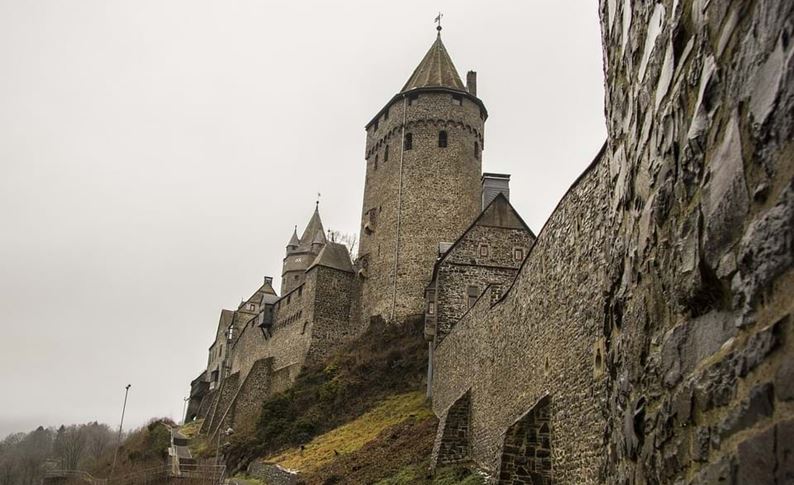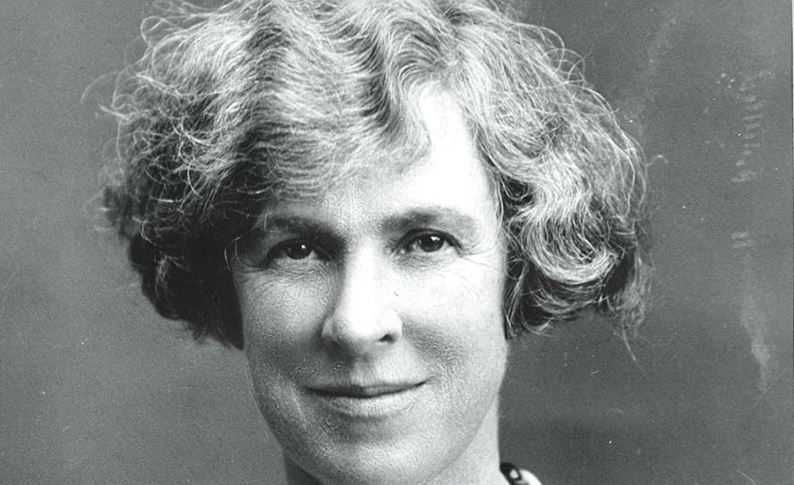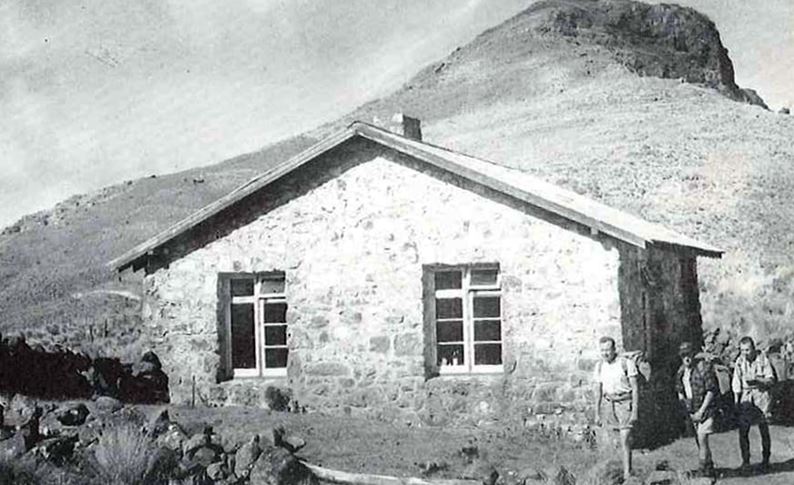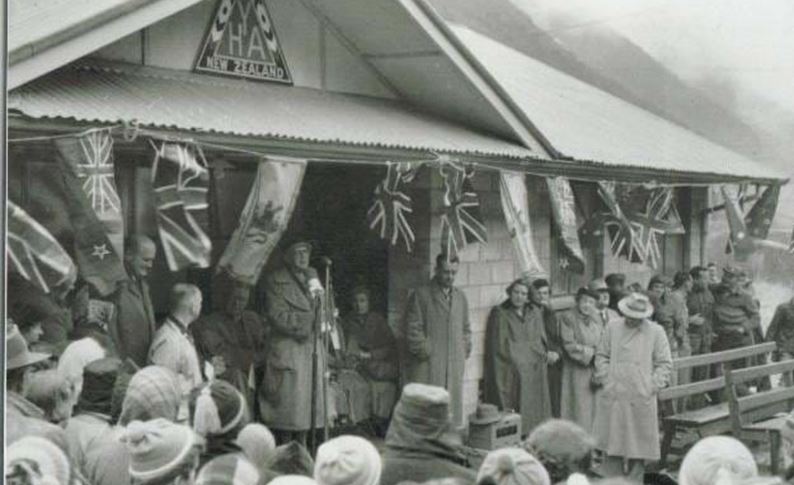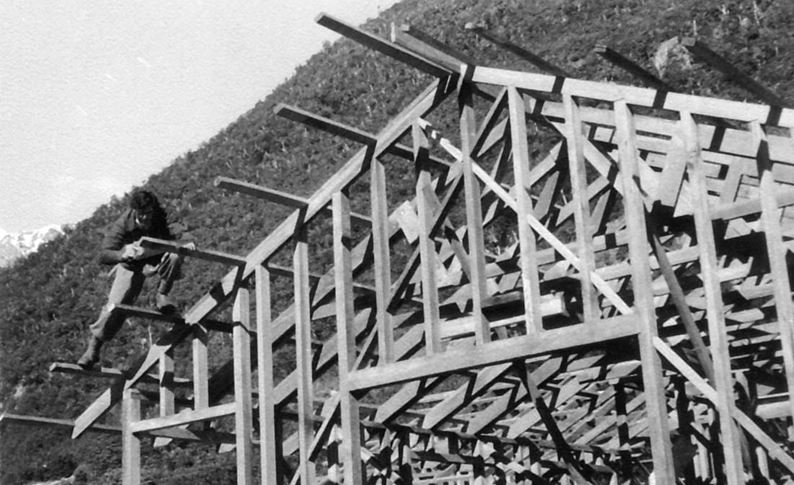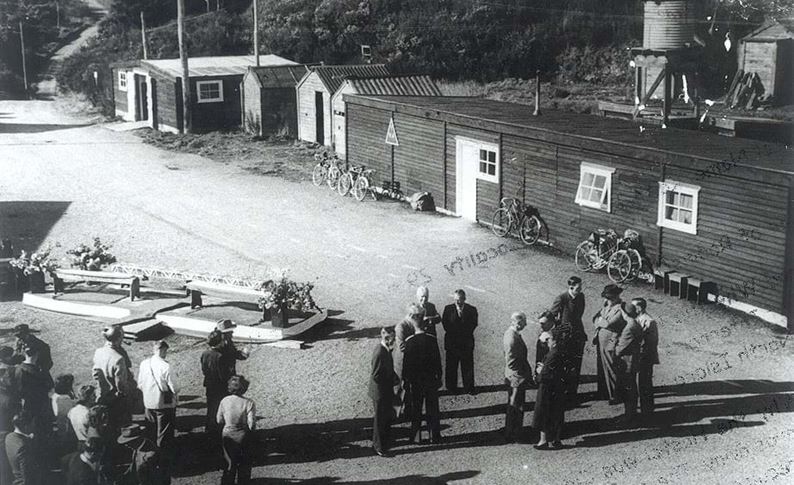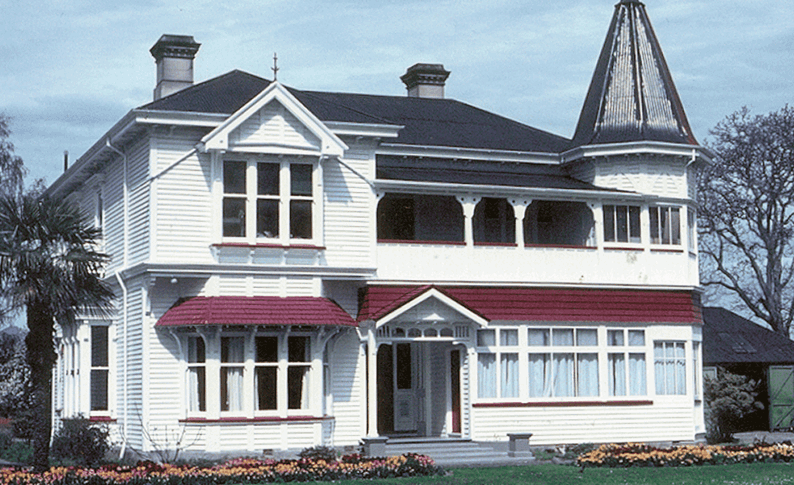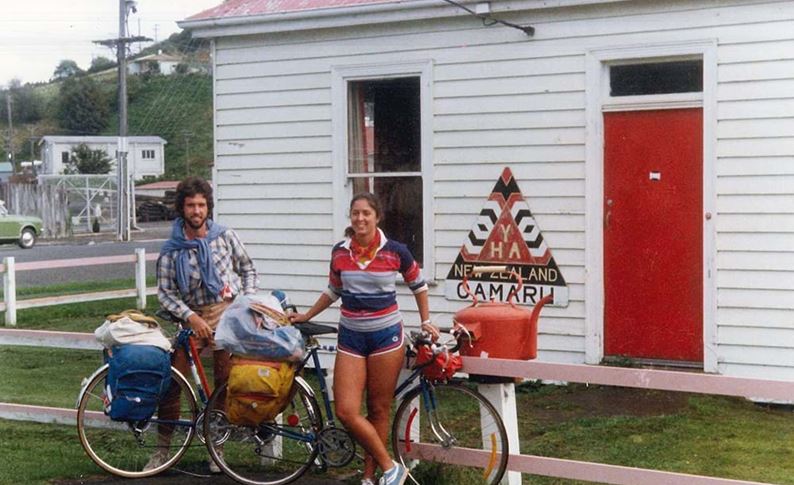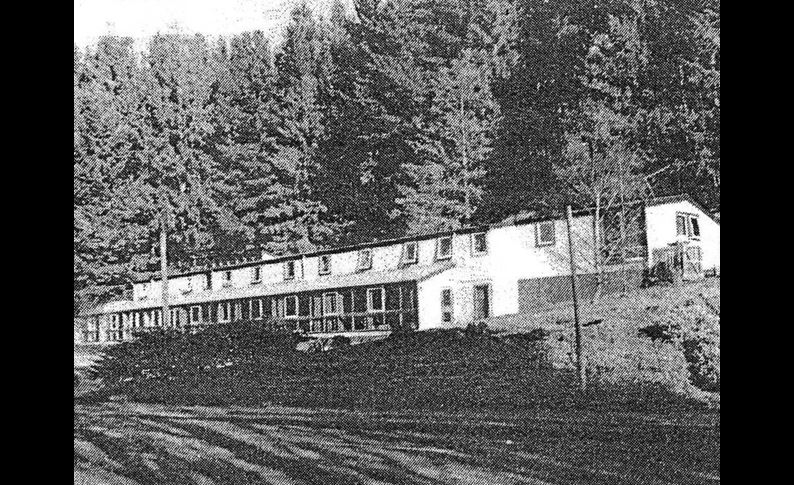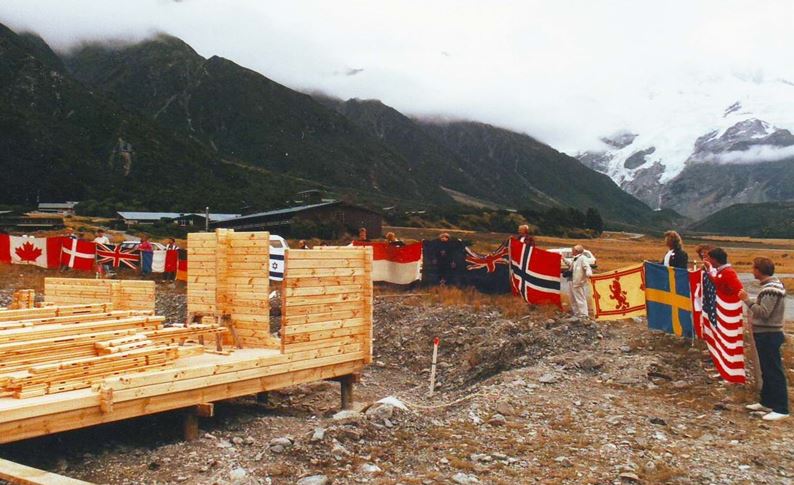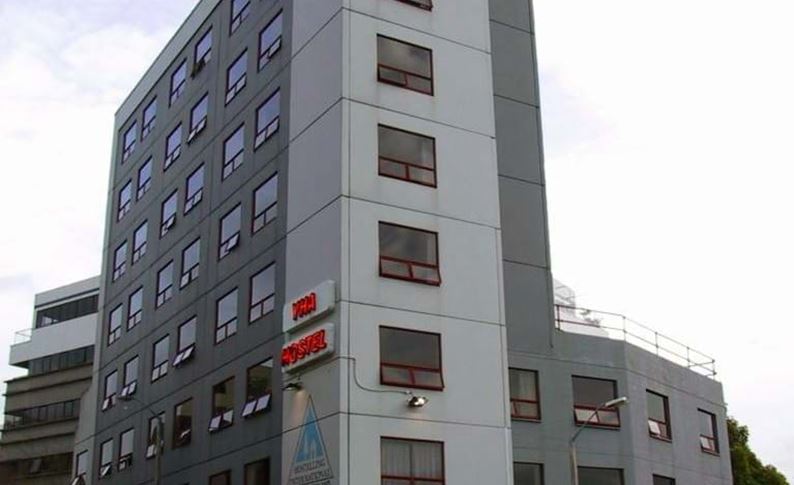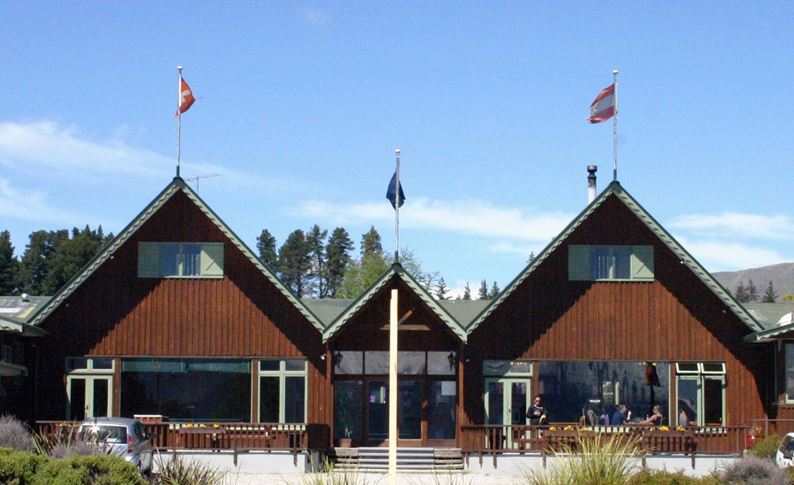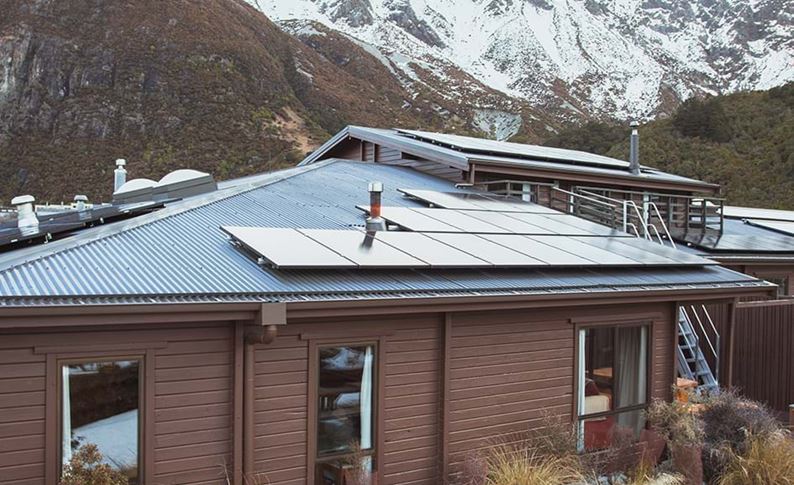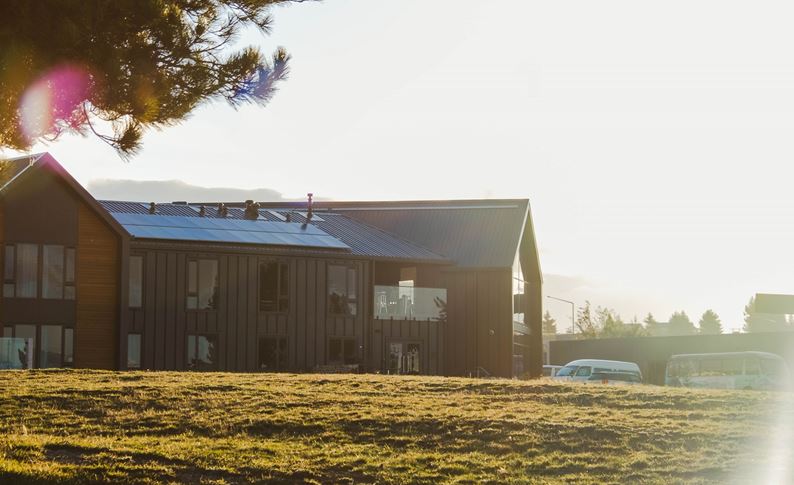In 1909 Richard Schirrmann, a German schoolteacher, came up with the idea for youth hostels after getting caught in a storm on an overnight trip with his students. Richard was enthusiastic about the outdoors and began establishing a network of places for young people to sleep within a day’s walk of each other. The movement spread and ten years later, he established the world’s first Youth Hostel Association in Germany.
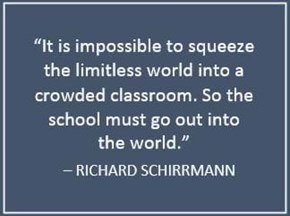
Associations began forming throughout Europe, and it was a visit to these hostels which inspired New Zealander Cora Wilding to start something similar. With fresh air, health, and community in mind, Cora began tramping around the Banks Peninsula in an attempt to find farms willing to provide simple accommodation for travellers. Passionate and tenacious, Cora rallied those of a similar mindset, gaining enough support by 1932 to start the first hostels in the Southern Hemisphere.
The initial accommodation options were within walking distance of each other and ranged from shearing sheds to rooms in country hotels. Members, or as they were called then, trampers, were welcomed for a shilling a night and a shilling a meal.
From the start, YHA New Zealand made it a mission to motivate and inspire young people from all over the country – and the world – to get out and explore New Zealand, to protect native flora and fauna, and to promote a better understanding and good fellowship amongst all people.
YHA Through the Years
1900s - 1920s
1909
- Richard Schirrmann comes up with the idea for youth hostels.
1912
- The world’s first permanent youth hostel opens in a castle (a real medieval fortified castle!) in Altena, Germany. And you can still stay there today.
1919
- The youth hostel movement spreads across Germany and Schirrmann founds the German Youth Hostel Association.
1930s
1932
- Cora Wilding founds the first Southern Hemisphere hostels in Canterbury. On 4 May at a general meeting, it is decided that the association be called the Youth Hostels Association of New Zealand and Sir Arthur Dudley Dobson, the man who gave his name to Arthur’s Pass, is elected as President.
- In October, the International Youth Hostel Federation (IYHF) is founded with Richard Schirrman as president.
1935
- YHA New Zealand has 27 hostels – 15 on Banks Peninsula and 12 on the West Coast.
1937
- The structure of membership at YHA New Zealand changes, allowing individual members to join, though most still join via tramping club affiliations, as previously necessary.
1938
- YHA New Zealand is incorporated under the Incorporated Societies Act, 1908 on the 21st day of October.
1940s
1946
- YHA New Zealand is the twentieth country in the world to become a part of IYHF.
1948
- The first hostel in Arthur’s Pass opens, which is the first time YHA New Zealand has owned a property. YHA Arthur’s Pass has 700 bednights in the first year.
1950s
1954
- Kaitoke I, the first YHA New Zealand on the North Island opens 29 miles north of Wellington on 8 May. At the opening, Cora Wilding remarks that it is “an important milestone in the history of YHA.”
1955
- Built mostly by members and volunteers, the Sir Arthur Dudley Dobson Memorial Hostel in Arthur’s Pass opens on 13 August. At the time, it is the biggest youth hostel in the Southern Hemisphere, with 48 beds. It is the first YHA in New Zealand to be built and designed as a hostel.
- A National Council for YHA New Zealand is established due to the growing association and need for a national administration. At this point, there are 1,451 members across the two islands.
1960s
1961
- The first YHA New Zealand National Office opens in Christchurch.
1966
- YHA New Zealand’s first permanent city hostel opens in Christchurch, named The Cora Wilding Hostel.
- YHA New Zealand develops a Long Term Plan. One outcome is that the 27 Branches are streamlined into four regions in an effort to have a more united organisation.
1969
- The world’s first computer-issued YHA membership cards are introduced in New Zealand and are obtained at national banks.
1970s
1972
- YHA Queenstown Lakefront opens with 48 beds, almost 20 years after the plans for opening a hostel in the area began. The hostel cost $60,000 to build and was the first in New Zealand to be funded on a national basis.
1974
- YHA New Zealand begins using Christchurch’s historic Rolleston House as overflow in the summer, when the Cora Wilding Hostel is too full.
- The Network Plan, a master plan for national YHA New Zealand hostel development is endorsed, once again aiming to centralise funding and decision making.
1980s
1980
- Christchurch hosts the 33rd IYHF Conference, the first in the Southern Hemisphere, and only the third outside of Europe.
1987
- The current Aoraki Mt Cook hostel officially opens in October, coinciding with the centenary celebrations of Aoraki Mt Cook National Park.
1988
- Membership reaches a peak of 46,621 people from around the globe.
1990s
1990
- YHA Auckland City opens and at the time is the largest hostel in New Zealand. It’s the first to be staffed 24 hours a day and even has its own budget restaurant.
1992
- YHA New Zealand decides to implement the IYHF Environmental Charter, committing YHA to conserve energy, recycle, minimise pollution, use environmentally-friendly materials, support the protection of wildlife habitats, and promote environmental education. YHA New Zealand is the first association in IYHF to formally adopt this charter.
1995
- YHA New Zealand receives the inaugural Tourism Board Award for Service to the Environment, which confirms the association’s commitment to sustainability.
1997
- YHA New Zealand’s governance process changes from National Executive to National Board, with responsibilities refocusing from day to day operations to a broader governing of the organisation.
2000s
2004
- YHA New Zealand begins measuring carbon emissions.
2006
- The International Youth Hostel Federation (IYHF) becomes Hostelling International (HI).
2008
- YHA New Zealand purchases a hostel in Rotorua, adding a 186-bed facility to the network in a key location.
2009
- A prime location in Wanaka is acquired when YHA New Zealand purchases Purple Cow Backpackers.
- A solar hot water heating system is installed at YHA Nelson.
2010s
2010
- YHA New Zealand is the first backpackers in the world to achieve Certified Emissions Measurement and Reduction Scheme (CEMARS) certification.
2013
- YHA begins offering free WiFi to members, leading the charge for New Zealand accommodation networks.
- YHA New Zealand launches a travel app to help travellers access better information for the best possible travel experiences.
2015
- Geothermal power is harnessed at YHA Rotorua using a down-bore heat exchanger, which heats the hostel’s potable water supply.
2016
- Solar panels are installed at both YHA Franz Josef and YHA Wellington.
- YHA New Zealand's managed hostels become the first accommodation network in the world to be Toitū carbonzeroCertTM certified.
2017
- YHA Aoraki Mt Cook becomes the first commercial operator in Aoraki Mt Cook National Park to install solar power.
2019
- YHA Aoraki Mt Cook, YHA Franz Josef, and YHA Te Anau install the first public electric vehicle chargers in their respective towns.
- YHA Lake Tekapo new build opens with Our Dog Friday food and beverage outlet.
- YHA sells and leases back hostels in Rotorua, Wellington, Lake Tekapo and Wanaka to pay down debt.
2020s
2020
- New Zealand’s international borders close and all YHA hostels temporarily close due to Covid-19 pandemic lockdown. Skeleton staff are retained as part of the govt wage subsidy scheme.
- Hostels reopen mid-year with traffic light restrictions in place.
2021
- December: Owned hostels forced to close their doors on the back of extended lockdowns and closed borders. All YHA New Zealand staff are made redundant and National Office closes.
- YHA New Zealand continues to run with an Associate network of hostels.
2022
- All owned hostel assets are put up for sale.
- April: Te Anau property sold to private buyer.
- September: Gaw Capital Holdings Limited (GCPH) purchase 8 hostels and later take over YHA Christchurch lease. All YHA New Zealand’s liabilities are now cleared.
- YHA embarks on a new chapter in our long and storied history. National Board employs a team of 4 people to reinstate services.
- New Membership portal developed and membership revenue restarts.
2023
- Website and booking engine reinstated for online sales of Associate and franchise hostels.

